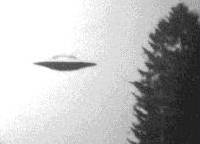Article/Document:
Anthropology and UFOs: An Introduction
Ryan J. Cook, Center for AnthroUfology - Anthropology and UFOs
original source | fair use notice
Summary: Despite institutional disincentives and widespread biases, a number scholars, including a number of anthropologists, have been pursuing the study of UFOs as a social phenomenon. I believe anthropology enhances such an approach in several respects.
Anthropologists traditionally have taken pride in their willingness to study everything about humans and our primate next-of-kin. Yet anthropological research, as in all other disciplines, is subject to the preferences and biases of its practitioners--and those from whom they must seek funding. Those biases include one discouraging research on unidentified flying objects (UFOs). Despite the insight UFOs - viewed as a social phenomenon - could shed on many different societies and their cultural and historical contexts, anthropological study of them is hampered by, on the one hand, the phenomenon's association with stigmatized fringe scientific or religious endeavors, and, on the other, the long-standing, conflicted attitude of the general public toward aerial anomalies (an attitude informed but not determined by scientific and political "knowledge elites").
Despite institutional disincentives and widespread biases, a number scholars, including a number of anthropologists, have been pursuing the study of UFOs as a social phenomenon. I believe anthropology enhances such an approach in several respects:
First, the tantalizing but inconclusive nature of the physical evidence in this field (e.g. chemical changes in soil and vegetation, electromagnetic disturbances, radar returns, photographs) has derailed many a "hard-science" investigation. Ufologists have long lamented that, for the most part, "all" they have to go on are witness reports. Given the nature of the raw data, a social-scientific and social-psychological research program should produce insights the heretofore predominant physical-science approach would not have produced.
Second, the UFO phenomenon is not confined to any one society--though the exact manner in which UFOs relate to the modern global economic system and the cultural influence of a number of "culture-exporting" nations (including the US) has yet to be addressed thoroughly. Most ufological studies tend to be very limited in cultural and geographic scope. A cross-cultural investigation of the sort in which anthropology excels should be a great way to discern the extent, the patterns, and the variability of UFO reports.
A third, related matter is how UFO reports vary between and within societies. Ufological and orthodox scientific investigations have tended to look for patterns in reports, casting off variations though - as more ufologists are realizing - those variations in experience are integral to the phenomenon. Once again, this is a place where cross-cultural, ethnographically based research can make significant contributions, not least by examining UFO reports and lore within the cultural contexts within which they circulate.
The social-scientific study of UFOs is not as fledgling a field of research as I may make it sound. Academic studies have been done on the history of sightings, on UFO beliefs, and even on abduction experiences. But I believe it can only help to encourage, through this site, social scientists (and anyone else who is interested) to investigate social and psychological phenomena under the UFO rubric in their proper cultural, political-economic, and historical context. I hope that in some way the resources contained here can be of some use, either to those already looking into UFOs or as a means of drawing more attention to the investigation.
In lieu of a fuller bibliography to come soon, I offer below a few references I consider to be of great utility or significance in the field. And, in the hyper-linked spirit of the Internet, many of these works have their own, much more extensive bibliographies that interested readers can pursue ever outward. Some books listed are out of print, but they can be purchased through services like Advanced Book Exchange and Bibliofind, or specialty sellers like Gordon Speer (www.essex1.com/people/speer/ufo.html).
Historical references
Thomas Eddie Bullard. 1982. Mysteries in the eye of the beholder: UFOs and their correlates as a folkloric theme past and present. Ph.D. dissertation, Indiana U.
David M. Jacobs. 1976. The UFO controversy in America. Bloomington: Indiana U P.
Curtis Peebles. 1995. Watch the skies! A history of the UFO myth. Washington DC: Smithsonian.
Social-scientific and social-psychological references
Joseph Blake. 1979. ‘Ufology: the intellectual development and social context of the study of unidentified flying objects.’ In Roy Wallis, ed. On the margins: the social construction of rejected knowledge. Keele: U Keele.
Michael Craft. 1996. Alien impact. NY: St. Martin's.
Linda Dégh. 1977. ‘UFOs and how folklorists should study them.’ Fabula 18:242-8.
Brenda Denzler. 2001. The lure of the edge: scientific passions, religious beliefs, and the pursuit of UFOs. Berkeley: U California.
C. G. Jung. 1991. Flying saucers: a modern myth of things seen in the skies. Princeton: Bollingen.
James R. Lewis, ed. 1995. The gods have landed: new religions from other worlds. Albany: SUNY.
Joost Meerloo. 1966. 'The flying saucer syndrome and the need for miracles.' Journal of the American Medical Association 203:70.
Bertrand Meheust. 1978. Science fiction et soucoupes volantes. Paris: Mercure de France.
Linda Jean Milligan. 1988. The UFO debate: a study of a contemporary legend. Ph.D. dissertation, Ohio State U.
Howard Peckham. 1950. ‘Flying saucers as folklore.’ Hoosier Folklore 9:103-7.
Ted Peters. 1977. UFOs-God’s chariots? Flying saucers in politics, science, and religion. Atlanta: John Knox.
Carl Raschke. 1989. 'UFOs: ultraterrestrial agents of cultural deconstruction.' Archaeus 5:21-32.
John Rimmer. 1969. ‘The UFO as an anti-scientific symbol.’ Merseyside UFO Bulletin 2(4).
David Ritchie. 1994. UFO: the definitive guide to unidentified flying objects and related phenomena. NY: MJF.
Peter Rojcewicz. 1984. The boundaries of orthodoxy: a folkloric look at the UFO phenomenon. Ph.D. dissertation, U Pennsylvania.
Carl Sagan and Thornton Page, eds. 1996 [1972]. UFOs: a scientific debate. NY: Barnes & Noble [Ithaca: Cornell UP].
Benson Saler, Charles Ziegler, and Charles Moore. 1997. UFO crash at Roswell: the genesis of a modern myth. Washington DC: Smithsonian.
Keith Thompson. 1993. Angels and aliens: UFOs and the mythic imagination. New York: Fawcett.
Read more articles on this topic:






